Welcome to QTalks under QWorld
QTalks is our new project, which aims to disseminate knowledge in the field of quantum software and quantum technologies, as well as share the experiences of people working in these fields.
QTalk
Quantum shape effects by Dr. Alhun Aydın
Tuesday, November 23, 2021 (19:00 CET) | Organized by QWorld
Moderator: Zeki Seskir (QWorld & QTurkey) and Dr. Onur Pusuluk (QTurkey)
From Alhun:
Can one change the shape of a domain without changing its sizes? What might such a change in the physical properties of confined systems lead to at the quantum scales? In this talk, I’ll present my PhD thesis topic where we introduced a new type of physical effect called “quantum shape effect”. In particular, our primary focus will be on the thermodynamic properties of nanoscale systems. We show that shape becomes an independent thermodynamic state variable and as a consequence we observe many interesting thermodynamic behaviors. I’ll finally mention some of the applications of the effect such as thermoshape voltage, quantum shape oscillations and heat engines driven by quantum shape effect.
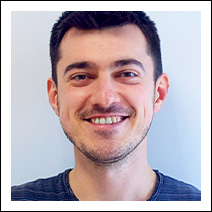
About Alhun:
Dr. Alhun Aydın works as a postdoctoral researcher in the Heller Group at Harvard University, USA. Alhun obtained his BSc in Physics at Koç University and his PhD at Istanbul Technical University, Energy Institute. During his PhD, he spent a year as a visiting researcher in the Department of Physics, Uppsala University, Sweden and Institute of Chemistry, Hebrew University, Israel. He worked on statistical thermodynamics of quantum systems, nanoscale energy conversion and quantum transport. His current research is focused on the development of coherent state representation for lattice vibrations and electron coherence effects.
Previous QTalks
QTalks on Quantum Technologies
From Blackholes to Satellites – Taking Quantum into Space by Dr Sonali Mohapatra
See the recordings of the event on YouTube >>
Thursday, June 24, 2021 (14:30 CEST) | Organized by QWorld
Moderator: Zeki Seskir (QWorld & QTurkey)
From Sonali:
In this talk I will talk about my journey translating academia and industry working in the quantum and space sector. I will touch upon my previous work on blackholes and quantum gravity, bringing quantum expertise into the satellite industry and the state of the art in quantum technologies for space. Specifically, my talk will discuss building a QKD payload for a small satellite for the upcoming mission ROKS (Responsive Operations for Key Services) due to be launched in 2022. I will end the talk with a brief discussion on equality, diversity and inclusion and how to ensure we can work towards a better future.
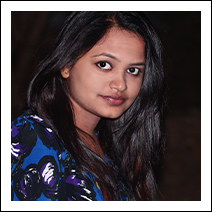
About Sonali:
Dr Sonali Mohapatra works as Space Quantum Technologies Deputy Lead at the Space Engineering Company, Craft Prospect and has an IAA research fellowship with the University of Strathclyde. With a PhD in quantum gravity and theoretical physics and interdisciplinary experience spanning optics, AI and quantum information, Sonali brings quantum expertise into the space sector. She is currently leading quantum modelling and QKD demonstration as part of the technical team of the upcoming ROKS mission which will be launched in 2022. Along with that she is also researching other early stage quantum technologies which can benefit from access to space.
Apart from that, Sonali has extensive experience in the EDI (Equality, Diversity and Inclusion) sector, is a board member of QuantumIndia, one of the founding members of the SSLC new voices in Space Group focussing on diversity and inclusion and is the founder of the queer/feminist platform, Carved Voices. Sonali published her first poetry collection, Leaking Ink in 2016 and is currently working on her next manuscript. She is passionate about outreach and regularly writes articles and speaks about her work.
QTalks on Quantum Technologies
March 27-28, 2021 | Organized by QTurkey Student Branch Yeditepe
QTurkey Student Branch Yeditepe (QSB Yeditepe) is organizing a QTalk weekend for Quantum enthusiasts and future engineers!
Eight speakers from all over the world will take part in the event.
Check the program:
27 March 2021 (Saturday)
- Demonstrating the Power of State-of-the-Art Quantum Computers (IBM) by Elisa Baumer (ETH Zurich – IBM) at 13:00 (GMT +3)
- A Global Quantum Network: Challenges, Solutions and Open Problems by Dr Kadir Durak (Ozyegin University – Qubitrium) at 14:45 (GMT +3)
- Generation and Manipulation of Squeezed State of Light from Rubidium Vapor by Saesun Kim (Uni. of Oklahoma – IBM) at 16:15 (GMT +3)
- Quantum Computing with Cold Cesium Atoms by Dr Denny Dahl (ColdQuanta) at 17:45 (GMT +3)
28 March 2021 (Sunday)
- Single Flux Quantum Logic: Tackling the Engineering Challenges of Quantum and Neuromorphic Computers by Dr Ali Bozbey (TOBB University) at 13:00 (GMT +3)
- Quantum Variational Optimization of Ramsey Interferometry and Atomic Clocks by Dr Denis Vasilyev (IQOQI) at 14:45 (GMT +3)
- What Quantum Software Engineers do? Hands-on example by Michal Stechly (Zapata Computing – QOSF) at 16:15 (GMT +3)
- Navigate Bloch Surface with Single Xmon Qubit by Dr David Lee TH (Academia Sinica) at 17:45 (GMT +3)
A weekend awaits you where you can most closely follow the second technology revolution and we cannot wait to welcome you to our event!
QTalk
Ethical Quantum Computing: A Roadmap by Elija Perrier
Thursday, March 11, 2021 (11:00 CET) | Organized by QWorld
Moderator: Zeki Seskir (QWorld & QTurkey)
See the recordings of the event on YouTube >>
From Elija:
Quantum computing is among the most significant technologies to emerge in recent decades, offering the promise of paradigm-shifting computational capacity with significant ethical consequences. On a technical level, the unique features of quantum computation have technical consequences for the imposition of fairness and ethical criteria on computation. Despite its significance, little if no structured research has been undertaken into the ethical implications of quantum technologies. In this study, we fill this gap in the literature by presenting the first roadmap for ethical quantum computing setting out prospective research programmes. In doing so, we inaugurate the cross-disciplinary field of the ethics of quantum computing.
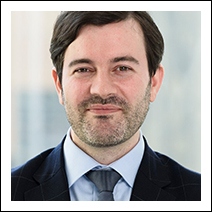
About Elija:
Elija Perrier is a doctoral candidate at the Centre for Quantum Software and Information at the University of Technology Sydney. Elija’s doctoral research focuses on the field of quantum machine learning, including quantum algorithm design, geometric and statistical learning theory and quantum control. He has a multi-disciplinary background, holding an LLB / BA (Hons) (English/Cultural & Communication Studies) from Murdoch University along with a BSc (Physics/Mathematics) (Hons) & BA (Economics/Philosophy) from the University of Sydney.
QTalk in Pakistan
Unlimited non-causal correlations and its relation to non-locality by Amin Shiraz Gilani
Wednesday, January 20, 2021, at 20:00 Pakistan time (15:00 GMT) | Organized by QPakistan
Moderator: Jibran Rashid
See the recordings of the event on YouTube >>
From Amin:
The traditional notion of causal order dictates that a space-time event cannot influence any event in its past. There exist motivations to relax this notion from the quest to combine general relativity with quantum theory. This has led to the search for physical principles that re-establish causal order. We ask whether causal order arises in the limit of multi-particle correlations and find multi-party non-causal correlations for any number of parties that are in agreement with all principles thus far posed. However, these correlations violate a family of causal inequality maximally, while under the assumption of causal order the corresponding game can at most be won with probability half in the limit of the number of parties. This implies that the space of logically consistent correlations is infinitely larger than the space of correlations based on the assumptions of causal order. The game is closely related to Ardehali-Svetlichny nonlocal game. We leave open the search for reasonable principles that establish causal order. It seems that as of today, the only way to establish causal order is to assume it.

About Amin:
Amin Shiraz Gilani is currently a computer science graduate student at the University of Maryland – College Park. In his internship with Dr. Ämin Baumeler at the Institute of Quantum Optics and Quantum Information, he explored the fundamental nature of noncausal correlations and their relation to nonlocality. He has presented his research at QIP 2018 and 2020, the latter earning him a best poster award.
QTalks about Quantum Games
Saturday, December 12, 2020 | Organized by QTurkey
15:00 (GMT+1)
Quantum Game and other science-based games by Piotr Migdał
From Piotr:
Quantum Game with Photons is a puzzle game simulating an optical table. You can interact with superposition, entanglement, measurement, and other quantum phenomena with a LEGO bricks-like interface. I will mention Explorable Explanations and other science-based games related to other aspects of physics or computing. The main goal is to inspire YOU to make YOUR own quantum game. I will share some resources that may be inspiring or directly used to create your game (even if it is your first game).
16:00 (GMT+1)
Gamifying Quantum Computation by Cheshta Joshi & Shreyas Nisal
From Cheshta and Shreyas:
Entry into quantum computing is often daunting. We move from classical computers which work on zeros and ones to quantum computers, where quantum-bits can be in superpositions (mixtures) of zeros and ones, and where these bits can become correlated to each other. To simplify understanding these phenomena and to understand logic gates used in quantum computers, we developed QLogic, a puzzle game based on quantum computing.
17:00 (GMT+1)
Quantum Odyssey – a video game that immerse you in Quantum Computing by Laurentiu Nita
From Laurentiu:
Quantum Odyssey is first, a video game. The player does not need to know any math, physics or anything about computation or quantum; or even be a fan of quantum computation (it can be played just for the fun of solving a new type of a puzzle game).
The odyssey starts by discovering bits, linear algebra, complex numbers, qubits, all quantum phenomenon and important algorithms. By the end of the playthrough, the Player will have all the “hacker tools” needed to design their own algorithms, understand papers on Universal Quantum Computing and create their own or find more efficient dozens of gates long quantum algorithms.

QTalk in Latvia | Quantum supremacy by Janos Asboth
19:00 (GMT+3), Wednesday, October 21, 2020 | Organized by QLatvia
Moderators: Maksims Dimitrijevs & Anastasija Trizna
YouTube link: https://youtu.be/698Ggy50XaQ
From Janos:
Perhaps the most important recent milestone in the exciting progress of quantum computing was passed last year, with the achievement of quantum supremacy by the UCSB-Google group. I was as excited to hear of this result as any of us working in the field of quantum information. I will discuss what quantum supremacy means, how it was demonstrated by Google’s group, and how this fits into the pattern of progress of quantum computing.
Disclaimer: I am not associated with Google, and did not take part in the experiment.
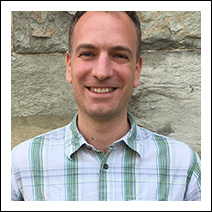
About Janos:
Janos Asboth is associate professor at the Budapest University of Technology and Economics, and Senior Research Fellow at the Wigner Research Centre for Physics in Budapest. He is doing research in theoretical quantum physics, studying generalizations and applications of topological phases, a topic at the interface between quantum information and solid state physics. Prior to his current position at the Wigner Centre, he held a post-doc position in Leiden. Janos obtained his PhD at University of Innsbruck.

Polarization of Light with Quantum Game by Piotr Migdał
19:00 (GMT+3), Tuesday, October 20, 2020 | Organized by QLatvia
Moderators: Abuzer Yakaryilmaz & Viktorija Laimane
YouTube link: https://youtu.be/QKBHIaFxLMQ
From Piotr:
Light is an electromagnetic wave. One of its key properties is polarization – the axis of oscillations. This phenomenon is used in photography, LCD screens, and quantum information. We will perform virtual experiments on how does the polarization interacts with mirrors, sugar solution, or magnetic field. All experiments in the Quantum Game virtual lab: https://quantumgame.io/
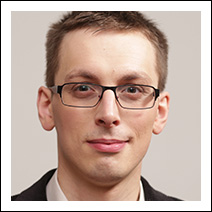
About Piotr:
Piotr is a quantum physics (PhD from ICFO, Castelldefels), and a specialist in AI and data viz. He co-founded Quantum Flytrap – an in-browser simulation & visualization of quantum mechanics. Piotr enjoys explaining complicated things in simple ways, ideally with interactive data visualizations. He develops livelossplot – a Python package for visualizing the training process in Jupyter Notebook, and Quantum Tensors – a TypeScript package for interactive quantum information and computing. https://p.migdal.pl / https://github.com/stared

My quantum journey by Laura Mančinska
19:00 (GMT+3), Thursday, October 22, 2020 | Organized by QLatvia
Moderators: Viktorija Laimane & Krista Petersone
From Laura:
“In this talk, I will share my professional journey into the strange world of quantum superposition and entanglement, where two friends, Alice and Bob, might even appear to have telepathic powers. It all began with a research seminar led by Prof. Rūsiņš Freivalds at the University of Latvia and continued with graduate studies and researcher appointments at various quantum computing centers across the globe. I will talk about what it takes to be a researcher and why I find the area of quantum computing particularly exciting. We will also see how simple games can be used to understand the power and limitations of quantum entanglement and even test proper functioning of quantum devices.”

About Laura:
Laura Mančinska is an Associate Professor at QMATH, Department of Mathematical Sciences, University of Copenhagen. Her research falls within the area of quantum information and computing and she is particularly interested in the phenomenon of quantum entanglement and its applications. In her research she combines tools from different areas including complexity theory, optimization, and graph theory. Before her current appointment at QMATH, Laura has held postdoctoral positions at the National University of Singapore and University of Bristol, UK. She holds a PhD in Quantum Information from the University of Waterloo, Canada.

